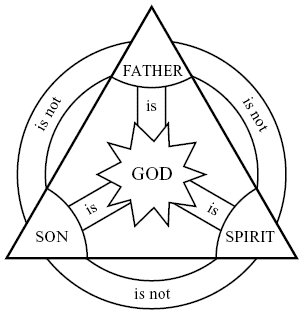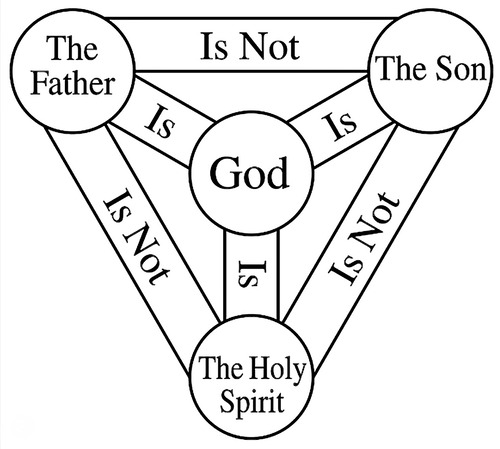Can Good Deeds Help Us Get to Heaven?
LESSONS FROM JESUS’ ENCOUNTER WITH TWO RICH MEN
Can good deeds help us get to heaven? Follow along as we dive in to Scripture to read about Jesus’ encounter with two men, to learn some vital lessons…
In Matthew 19, a wealthy young man approaches Jesus with a pivotal question: “Teacher, what good deed must I do to have eternal life?” (v.16). His mindset revealed a fundamental misunderstanding that many share—the belief that we can earn our way to heaven through good works and moral living.
The Impossible Standard of Perfection:
But Jesus exposes the folly of this thinking. He responds by pointing to the moral law, the 10 Commandments, saying “If you would enter life, keep the commandments” (v.17). When the man claims to have kept them, Jesus raises the bar even higher: “If you would be perfect, go, sell what you possess and give to the poor, and you will have treasure in heaven; and come, follow me” (v.21).
Jesus is not merely issuing a command about radical generosity. He’s showing that to truly be “perfect” and earn eternal life by human effort alone, the man would have to flawlessly obey the entire law—not just the 10 Commandments—and live an utterly sinless life of perfect righteousness and good deeds continually. As James 2:10 states bluntly, “Whoever keeps the whole law but fails in one point has become guilty of all of it.”
The Impossible Question:
Faced with this impossible standard of moral perfection, the man should have realized what the disciples grasped a few verses later: “Who then can be saved?” (v.25). We all fall short of God’s perfect righteousness, no matter how impressive our good deeds. As Isaiah 64:6 declares, “All our righteous acts are like filthy rags.”
Jesus makes the point plain: “With man this is impossible” (v.26). On our own merits and efforts, we can never be good enough to earn salvation and eternal life. This is why we so desperately need a Saviour—which is precisely who Jesus came to be. He continues, “With God all things are possible.” Eternal life comes through God’s sheer grace and mercy.
Salvation Through Faith Alone: This truth is powerfully illustrated in Jesus’ interaction with another rich man, Zacchaeus the tax collector in Luke 19. When the reviled but repentant Zacchaeus welcomes Jesus joyfully into his home, Jesus simply declares, “Today salvation has come to this house” (v.9). Salvation is received through faith alone, apart from works.
Jesus doesn’t command Zacchaeus to sell everything first to prove his repentance. Zacchaeus’ incredible generosity—his promise to give half his possessions to the poor and repay anyone he defrauded four times over (v.8)—flows out of a heart transformed by the free gift of salvation.
So, can good deeds help us get to heaven?
No, Salvation Does not Flow from Good Works. But, Get This: Good Works Flow from Salvation:
Good Works Flow from Salvation: While good deeds can never earn us salvation, they are the crucial evidence and fruit of genuine salvation worked in us by God’s grace. As Ephesians 2:8-10 states:
“For by grace you have been saved through faith. And this is not your own doing; it is the gift of God, not a result of works, so that no one may boast. For we are his workmanship, created in Christ Jesus for good works.”
Good works don’t save us—we can’t take any credit. But once we’re saved, we’re recreated by God to willingly walk in the good works He prepared beforehand. James 2:14-26 and 1 John 3:17-18 also emphasize that true faith in Christ will inevitably produce a life of love, generosity and righteousness.
Conclusion: So while it’s tempting, like the rich young ruler, to cling to our own self-righteousness and try to earn God’s favour through a moral, generous life, Jesus’ words expose this as a hopeless path. Perfection is the standard for earning eternal life by our works, and we all fall miserably short (Romans 3:23).
Our only hope is to humble ourselves before God, repent of our self-reliance, and put our faith in Christ alone as our perfect righteousness and redeemer (2 Corinthians 5:21). Like Zacchaeus, when we receive God’s free gift of salvation, our lives will be transformed to bear the fruit of good deeds—not to get saved, but because we are saved by God’s infinite grace and love.
The path to heaven is not paved with our own acts of moral goodness and generosity, however sincere. It comes through repentant faith in the perfect life, atoning death, and resurrection of Jesus Christ alone. Let us abandon self-righteousness and cling to the cross, so that our good works flow as expressions of gratitude for the salvation we could never earn, but have received nevertheless—by grace through faith.
Related Reads:
Editor's Pick

Should We Stop Using Male Pronouns for God? Why Do We Say No?
A friend of ours arrived eagerly at his first theology class in seminary. But he quickly discovered something troubling: the [...]

Did Old Testament Law Force Women to Marry their Rapists?
**Editor’s Note: This post is part of our series, ‘Satan’s Lies: Common Deceptions in the Church Today’… Viral misinformation abounds [...]

From Danvers To Nashville: Two Statements, One Biblical Vision
30 years separate the Danvers Statement on Biblical Manhood and Womanhood (1987) and the Nashville Statement on Human Sexuality (2017). [...]

The Nashville Statement: Why Affirm It Despite Media Backlash?
WHY DO REFORMED CHRISTIANS STAND BY THIS STATEMENT ON MARRIAGE AND GENDER? When the Nashville Statement was released in 2017, [...]

Who Is Belial? Solving The 2 Corinthians 6:15 Mystery
Belial: This name from the pages of Scripture chills the soul. Who is this mysterious figure Paul invokes in 2 [...]

Celibacy Or Castration: What Jesus Really Means in Matthew 19:12
One of Scripture's most shocking misinterpretations led theologian Origen to castrate himself in the third century. His tragic mistake? Taking [...]

Philippians 4:13: Did Paul Really Mean We Can Do ALL Things?
"I can do all things through Christ who strengthens me." It's on gym walls, graduation cards, and motivational posters everywhere. [...]

The Ordinary Means of Grace: Why Are They Indispensable?
ORDINARY MEANS FOR EXTRAORDINARY TRANSFORMATION What if God's most powerful work in believers' lives happens through the most ordinary activities? [...]

Is the Bible God’s Word? Or Does It Only Contain God’s Word?
The authority of Scripture stands at the crossroads of modern Christianity. While some argue the Bible merely contains God’s Word [...]

Will We Remember This Life in Heaven? What Isaiah 65:17 Means
"Will I remember my spouse in heaven? My children? Will the joy we shared on earth matter in eternity?" These [...]
SUPPORT US:
Feel the Holy Spirit's gentle nudge to partner with us?
Donate Online:
Account Name: TRUTHS TO DIE FOR FOUNDATION
Account Number: 10243565459
Bank IFSC: IDFB0043391
Bank Name: IDFC FIRST BANK






